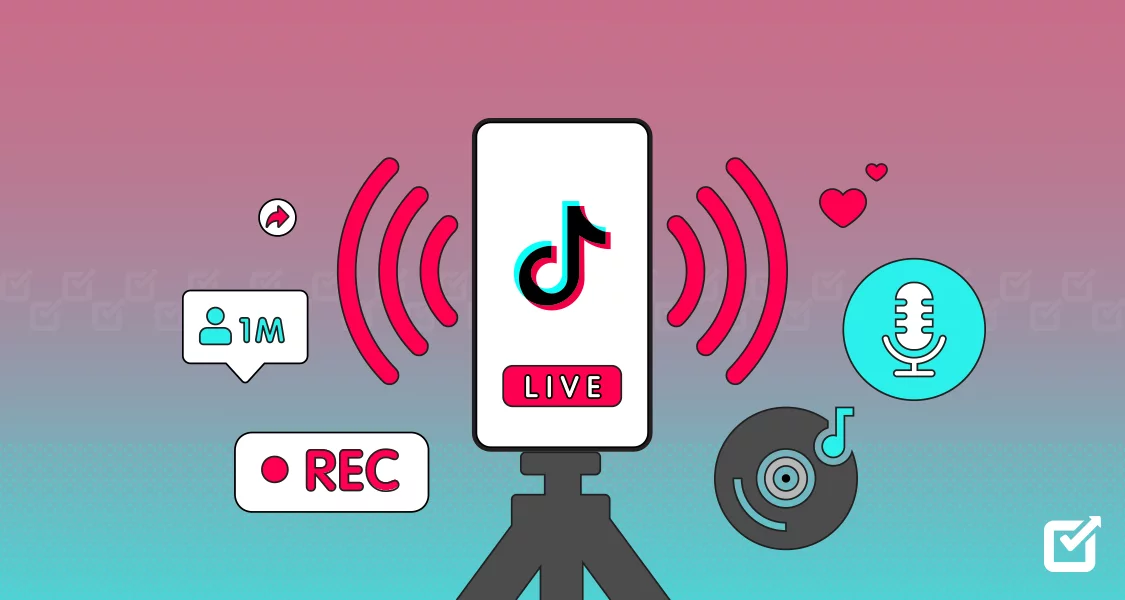Brand awareness is critical for any business to survive in today’s competitive market. The key to making it visible in search engines and directories is to ensure that potential customers can find your company. It’s crucial to have a quality SEO strategy that will help you rank higher in search engines, which can lead to more people finding your business.
There are many simple steps you can take to boost your brand awareness through SEO. One key is to optimize your website with keywords that are relevant to your business. Adding keywords to your social media posts is also a great way to get them out there. Another way to spread awareness is to create quality content on social media. Create posts that are relevant to the top trending topics in your industry. This is a sure-fire way to get noticed. For more such tips & actions, we invited Nikola Roza over a Twitter chat session to learn more about brand awareness through SEO.
Nikola Roza is a blogger, content marketer, and SEO specialist. He started his journey in 2015 with affiliate marketing. Nikola has learned a lot from his journey & is happy to share some insights with our audience. Let’s see what he has got!
We are LIVE from our #ChampsTalk session with @NikolaRoza | Content Marketer and SEO Expert
Topic of discussion: How to Boost Brand Awareness Through SEO 🌟
Join us at 08:00AM PST
.
.#SocialChamp #chatsession #SEO pic.twitter.com/nMMiU5Qdzq— Social Champ (@SocialChampSays) October 20, 2021
Thank you for having me! It's a honor.
— Nikola Roza (@NikolaRoza) October 20, 2021
Thank you @NikolaRoza for joining us today 🙏
Let's begin with our first question: How can a business increase search volume for the brand name?#ChampsTalk pic.twitter.com/FCIWNFyvLv
— Social Champ (@SocialChampSays) October 20, 2021
A1a- Increasing branded search volume is a long-term play and implies an already achieved level of success. Here are three simple ways to boost brand search volume.
#ChampsTalk— Nikola Roza (@NikolaRoza) October 20, 2021
A1b- First, start guest posting on reputable sites with a lot of traffic already. I know it's easier said than done, but you have to start somewhere. Even if you can guest post 2-3 times per month, it'll be worth it if it gets your name out there.
#ChampsTalk— Nikola Roza (@NikolaRoza) October 20, 2021
A1c- For example, after I did this guest post on SingleGrain (300K+traffic) https://t.co/R5rqpIPhvH my branded searches increased 5-fold. And it was after only one guest post. As you guest post more, your results will compound.
#ChampsTalk— Nikola Roza (@NikolaRoza) October 20, 2021
A1d- Another way is social media. As you get active on social, (mainly Twitter and Facebook) other users of the platform will notice you and will come to check you out. This means they'll remember you and next time will search directly in Google.
#ChampsTalk— Nikola Roza (@NikolaRoza) October 20, 2021
A1e- The third way is to have an excellent site and content. Honestly, if someone visits your site and it's crap, they'll never come back. But if you give them a good experience, they will return, especially when they see your name on social and in guest posts.
#ChampsTalk— Nikola Roza (@NikolaRoza) October 20, 2021
Q2. What are the best practices to rank evergreen content? #ChampsTalk pic.twitter.com/YuzN0dYXN9
— Social Champ (@SocialChampSays) October 20, 2021
A2a- the best practice to rank evergreen content is to create it. It's the most important step. Evergreen content is for forever, which also means it'll take a long time to rank in Google, as Google's probably satisfied with the set of pages that's currently ranking #ChampsTalk
— Nikola Roza (@NikolaRoza) October 20, 2021
A2b- you have to be prepared to be in it for the long haul.
Second, build as many internal links to that page as possible.
The goal is to funnel PageRank so the page naturally starts picking up long-tail queries as fast as possible, so you can gauge its potential. #ChampsTalk— Nikola Roza (@NikolaRoza) October 20, 2021
A2c- Third, after three months, the page has had some time to mature. Go back to it and examine in GSC the queries it picked up. Look for those where there are lots of impressions which signifies large search volumes.
#ChampsTalk— Nikola Roza (@NikolaRoza) October 20, 2021
A2d- Fourth, update the page by including those chosen terms more prominently, and by rewriting parts to naturally fit better. Your goal is to make your page more relevant to the queries Google has shown they like your page for.
#ChampsTalk— Nikola Roza (@NikolaRoza) October 20, 2021
A2e- Fifth, start building links to that page. Most of the links should have some keyword variation in their anchor text. Don't worry too much about over optimization, but don't go crazy with the anchor text either. Make it natural and shoot for quality and volume.
#ChampsTalk— Nikola Roza (@NikolaRoza) October 20, 2021
A2f- Link velocity is not a factor. It's a made up SEO term and feel free to build links as fast as you can.
#ChampsTalk— Nikola Roza (@NikolaRoza) October 20, 2021
Q3. What would be your advice for optimizing a new website for higher organic traffic? #ChampsTalk pic.twitter.com/bOrMqdaptx
— Social Champ (@SocialChampSays) October 20, 2021
A3a- When optimizing a new website, first you need to take care of the basics. Basics are everything you can do on-site before you start building off-page signals.#ChampsTalk
— Nikola Roza (@NikolaRoza) October 20, 2021
A3b- First, we have site speed, which is a ranking factor. However, having a fast site does not mean you'll be catapulted to the top.
But, having a fast site is a prerequisite to getting traffic and users won't want to visit a slow website. Speed= better UX#ChampsTalk— Nikola Roza (@NikolaRoza) October 20, 2021
A3c- I suggest people go for cloud hosting if they can afford it, and combine it with their caching plugin of choice. A CDN is a nice bonus as well. Cloudflare is free and does the job.#ChampsTalk
— Nikola Roza (@NikolaRoza) October 20, 2021
A3d- Second, site architecture is crucial when you're a new site. You want to make it as easy as possible for Google to crawl your site. You can achieve this by having an HTML sitemap in the footer. Because it lists all blog posts in one place for Google to crawl.#ChampsTalk
— Nikola Roza (@NikolaRoza) October 20, 2021
A3e- Third, on-site trust factors. Google needs to know you're a legitimate business and not a fly-by operation. This info is especially important to have for folks who have sites in the YMLY niches. For them, it's crucial to send trust signals to Google.#ChampsTalk
— Nikola Roza (@NikolaRoza) October 20, 2021
A3f- On-site trust factors are:
Having an "about me" page.
Having obligatory pages (privacy policy, affiliate disclosure; cookie info…)
Having a contact page and email address
Having a physical address and phone number#ChampsTalk— Nikola Roza (@NikolaRoza) October 20, 2021
A3g- Fourth, off-site trust-building. It's easy, all you have to do is, once you have your business's name, address, and phone number, is to go to a bunch of local directories and submit your listing. This will show Google you're for real. I use SEO Buttler for this #ChampsTalk
— Nikola Roza (@NikolaRoza) October 20, 2021
A3h- Fifth, never-ending step. Link building. You need to get your site referenced across the web. Because the web is a voting system and links are votes. Whoever has the most votes, wins. But, link building comes last, after you've cleaned up your home yard. #ChampsTalk
— Nikola Roza (@NikolaRoza) October 20, 2021
Q4. What are the best metrics for measuring SEO efforts? How can one identify gaps in their SEO strategy? #ChampsTalk pic.twitter.com/iHTxC9XQLY
— Social Champ (@SocialChampSays) October 20, 2021
A4a- The best metric for measuring SEO success is traffic. Bar none, that is how you measure success with obviously more=better.#ChampsTalk
— Nikola Roza (@NikolaRoza) October 20, 2021
A4b- The second best metric is the number of keywords where you rank in the first 100 in Google. This data shows you opportunities and when you see the numbers rise, you're on the right path. This is also highly correlated with increased impressions count in GSC.#ChampsTalk
— Nikola Roza (@NikolaRoza) October 20, 2021
A4c- The third best metric is the rise of your DR in Ahrefs. If you see your DR rise and you know you've been building healthy links, then that too is also a sign of huge potential you're sitting on and that's waiting to be used.#ChampsTalk
— Nikola Roza (@NikolaRoza) October 20, 2021
A4d- as for strategy gaps, here are two.
First, if you see your DR rises but traffic is going down, it could be you're building spammy links which inflate DR and lower organic traffic; or it could be that you're targeting super competitive keywords. Investigate.#ChampsTalk— Nikola Roza (@NikolaRoza) October 20, 2021
A4e- Finally, if you're ranking and getting lots of traffic but it's not converting, then you might have a problem with copywriting, or your site is slow and people bounce quickly, or maybe the site looks untrustworthy. Examine these as well.#ChampsTalk
— Nikola Roza (@NikolaRoza) October 20, 2021
Q5. What should one consider before finalizing keywords and topics for content production?#ChampsTalk pic.twitter.com/EooZ81VSu0
— Social Champ (@SocialChampSays) October 20, 2021
A5a- before going for a keyword and especially before creating content for it, you need to gauge your competitors strength.
Here's what you have to pay attention to. #ChampsTalk— Nikola Roza (@NikolaRoza) October 20, 2021
Exactly, it's impossible to compete and win over a 80 D.R website with your website that is of null or little authority.
Start with low competitive keywords and accumulating small wins.
— Mudassir Ahmed (@Mudassir9s) October 20, 2021
That's true!
— Nikola Roza (@NikolaRoza) October 20, 2021
A5b- Their link velocity. How fast are they building links to their target page which you want to outrank? You must know this so you can plan your link building accordingly.#ChampsTalk
— Nikola Roza (@NikolaRoza) October 20, 2021
A5c- Their topical authority. If you want to rank for X, and you see your main competitor has 50 articles about X, you know they have topical authority on their side and you'll have to match that in order to compete. So ask yourself if it's worth it.#ChampsTalk
— Nikola Roza (@NikolaRoza) October 20, 2021
A5d- Their overall domain authority. If you're aDR4, and they're a DR60, it's not a lost cause if you can build many more links than them, but they will have it way easier to keep their rankings than you to overtake them. Be prepared for a battle.#ChampsTalk
— Nikola Roza (@NikolaRoza) October 20, 2021
A5e- How long have they been ranking? When Google ranks a page and users love it, Google becomes hesitant to move that page in favor of a new one. It's called historical data and it's a crucial ranking factor. Historical data is why it's so hard to outrank someone.#ChampsTalk
— Nikola Roza (@NikolaRoza) October 20, 2021
A5f- Finally, keyword profitability. If you know ranking for X will make you a lot of money and investing in ranking will be worth it, then go for it. If you doubt or know it won't, forget about it. Pick your battles wisely and invest effort for a larger payoff.#ChampsTalk
— Nikola Roza (@NikolaRoza) October 20, 2021
Q6. How important is link building in terms of ranking a content piece? Does quantity matter over quality here?#ChampsTalk pic.twitter.com/ZUsXkNd1DT
— Social Champ (@SocialChampSays) October 20, 2021
A6a- Both link quality and quantity matter. And they're equally important.
On the one hand, if you build a ton of crappy links, you won't rank. But if you build one super high-quality link, you'll be beaten by a site with 5 decent links.
#ChampsTalk— Nikola Roza (@NikolaRoza) October 20, 2021
A6b- The answer for link building to any piece of content is to have a set of link quality criteria, to insist on those with any link you build, and to keep going and keep going until you rank. You can't have too many links to a page, but you can have too few.
#ChampsTalk— Nikola Roza (@NikolaRoza) October 20, 2021
A6c- To summarize, both are equally important and one of the biggest mistakes I see bloggers make is that they put too much emphasis on link quality and neglect quantity.
They build one awesome link to a page and then wonder why they're not ranking.
#ChampsTalk— Nikola Roza (@NikolaRoza) October 20, 2021
Q7. What technical aspects affect the ranking of a website on search engines? #ChampsTalk pic.twitter.com/Z16HucL4DM
— Social Champ (@SocialChampSays) October 20, 2021
A7a- Website speed is a big one. Search engines don't want to rank slow websites as it reflects poorly on them. And even when you rank with a slow page, no one sticks around on it. In fact, they bounce before the page even loads and that's a bad omen for sure.
#ChampsTalk— Nikola Roza (@NikolaRoza) October 20, 2021
A7b- The second one is site architecture. Website structure is crucial to get right so that Google can properly crawl your site. This is even more important when you're a new site and you have no crawl budget dedicated to you.
#ChampsTalk— Nikola Roza (@NikolaRoza) October 20, 2021
A7c- So many new bloggers make the mistake of burying most of their content 10 clicks away from the homepage, and it prevents them from ranking well.
The solution is having an HTML sitemap in the footer and having category links in the menu. Problem solved.
#ChampsTalk— Nikola Roza (@NikolaRoza) October 20, 2021
A7d- Site speed and crawlability are the 2 big ones, and the third one is PageRank funneling. You want PR to reach every part of your site equally. However, this is solved the same time you solve site architecture issue as site structure is actually how PR flows
#ChampsTalk— Nikola Roza (@NikolaRoza) October 20, 2021
Q8. Lastly, who do you think we should invite next on #ChampsTalk? pic.twitter.com/dzWlfufpTN
— Social Champ (@SocialChampSays) October 20, 2021
A8a- I'm blessed with many wise blogger friends. I recommend you invite these great folks for a chat.@InspireToThrive @MrsPaznanski @RyanBiddulph @adamjayc @vishwa328 @lazychakrabarti#ChampsTalk
— Nikola Roza (@NikolaRoza) October 20, 2021
Thank you @NikolaRoza for recommending these great personalities! 🙏
We will contact them for our upcoming #ChampsTalk sessions😇
— Social Champ (@SocialChampSays) October 20, 2021
That's it for today folks, we would like to thank you @NikolaRoza for your knowledgeable insights. 🙏
We loved having you and hope that the audience enjoyed today’s session of #ChampsTalk 😇 pic.twitter.com/XuSbeVMGB7
— Social Champ (@SocialChampSays) October 20, 2021
Thank you, SocialChamp team. I'm honored!
— Nikola Roza (@NikolaRoza) October 20, 2021
Not at all, we are honored ourselves that experts like you are part of our #ChampsTalk chat session.❤️
— Social Champ (@SocialChampSays) October 20, 2021
Hey @NikolaRoza ! Why are metatags helpful for search engines? And how can I add metatags with no HTML or coding experience? #ChampsTalk @SocialChampSays
— Tom Andrew Maguire (@tomdrewmag) October 20, 2021
Hi Touseef, meta tags help because they're on-page relevance clues for the search engines. They use them to understand and rank your page better. You can add them with Yoast and RankMath and all other SEO plugins.
— Nikola Roza (@NikolaRoza) October 20, 2021
Thank you so much!
— Tom Andrew Maguire (@tomdrewmag) October 20, 2021
Do different search engines require different on-page and off-page optimization techniques, or is it the same for all?@NikolaRoza #ChampsTalk @SocialChampSays
— Yumna Hafeez (@hafeez_yumna) October 20, 2021
Hi Yumna, they're largely the same because they use the same meta data input. In other words, when you optimize for Google, you optimize for everyone else. However, meta tags are valued differently by different search engines. Overall, don't worry about it.
— Nikola Roza (@NikolaRoza) October 20, 2021
What tools or plugins would you recommend for search engine optimization? #ChampsTalk @NikolaRoza @SocialChampSays
— Tahniat Alam (@tahniatalam) October 20, 2021
For on page I reccomend RankMath. For site speed I recommend WP Rocket and Cloudflare or CDN Bunny. A a bonus tool, use SEO Surfer or Page Optimizer Pro #ChampsTalk
— Nikola Roza (@NikolaRoza) October 20, 2021
Hey, @NikolaRoza I have a question is NitroPack WP plugin is a good choice for website speed?
— Shakeel Ahmed (@ShakeelSEO) October 20, 2021
Hi Shakeel, I'd say it is excellent provided you don't know how to optimize a site for speed by yourself. I do know a bit and I got worse results when I tried NitroPack. But, they're excellent for most bloggers and will help you get a faster site.
— Nikola Roza (@NikolaRoza) October 20, 2021
Hello @NikolaRoza, what are major factors we need to find and optimize when auditing a blog? #ChampsTalk
— Mudassir Ahmed (@Mudassir9s) October 20, 2021
Hi Mudassir,when auditing a blog, first you start with technical SEO (broken links, site architecture, site speed and any other technical issue).
Then you audit content, mainly looking for thin content and keyword cannibalization.
And finally, you audit their link profile.— Nikola Roza (@NikolaRoza) October 20, 2021
What are the benefits of having a sitemap? Is it mandatory to have one? @NikolaRoza @SocialChampSays #ChampsTalk
— Marium Fahim Khan (@marium_fahim) October 20, 2021
Hi Marium, it's not mandatory to have a sitemap, but it is very important, especially for new blogs. Because Google searches for XML sitemap when they visit your site and use it to crawl your website. Because XML sitemap tell them about new content and all content changes.
— Nikola Roza (@NikolaRoza) October 20, 2021
Is it helpful to allow bot crawlers to crawl and index each page of a site? #ChampsTalk @SocialChampSays @NikolaRoza
— Fahad Ahmed (@Fahad_Ahmed94) October 20, 2021
Hi Fahad, depends on the site. Sometimes, you have content where bots shouldn't have access to. For example, you're a membership site. Of course they shouldn't index your membership area
— Nikola Roza (@NikolaRoza) October 20, 2021
But on a regular site, you shouldn't index thin content, which are category and tag pages. And any other archive pages. Including pagination. #ChampsTalk
— Nikola Roza (@NikolaRoza) October 20, 2021
Hi @NikolaRoza, apart from great content and backlinks, what else we need to rank a page top on Google?#ChampsTalk
— Mudassir Ahmed (@Mudassir9s) October 20, 2021
Hi Mudassir, you need to have a good technical SEO foundation. And you also need to have trust signals displayed prominently on your website. #ChampsTalk
— Nikola Roza (@NikolaRoza) October 20, 2021
Love the point of having trust signals on website, many people overlook it.
— Mudassir Ahmed (@Mudassir9s) October 20, 2021
Outlinking to irrelevant niche website can be a problem? For example, when organizing expert roundup, we need to link to expert's website, be it any niche. So will it be a problem in the long run?
— Mudassir Ahmed (@Mudassir9s) October 20, 2021
No, don't worry about it. It's a good blogger etiquette to link to everyone who contributed. As long as they're not in a shady niche
— Nikola Roza (@NikolaRoza) October 20, 2021
We’d like to thank Nikola Roza for taking the time for us and sharing his insights about SEO with our audience!






